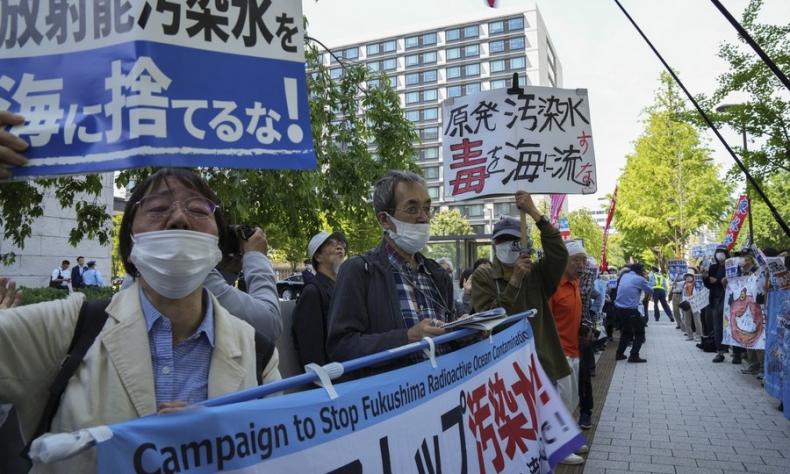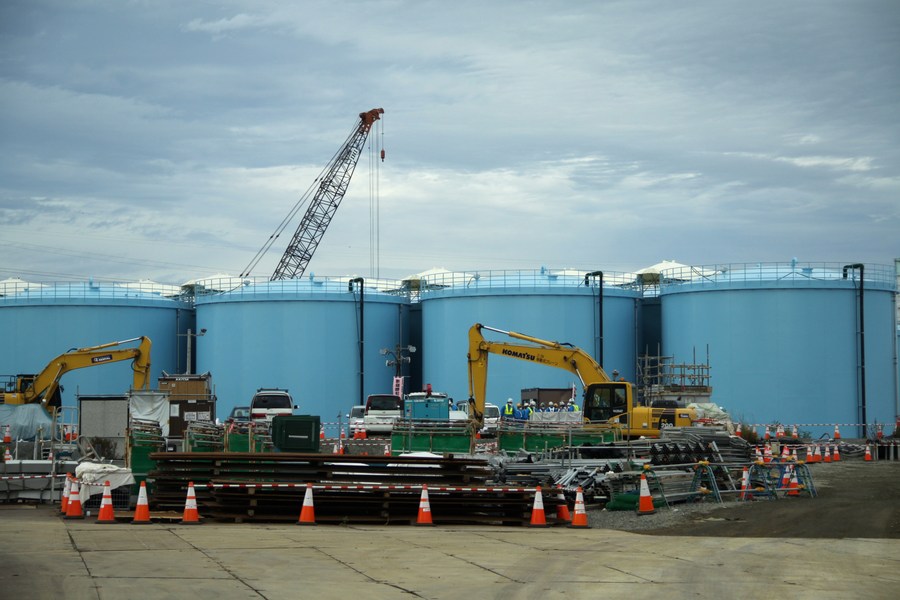Japan’s Nuke Water Dumping Plan Irresponsible

The Pacific is not Japan’s sewer.
Hiroshima, hometown of Japanese Prime Minister Fumio Kishida, is also known as the world’s first nuclear attack target in history. From May 19 to 21, the Group of Seven (G7) summit took place in the city. Apart from the more common issues on the agenda, Japan’s main concern was seeking this club of rich nations’ endorsement for its nuclear wastewater discharge plan.
Twelve years ago, on March 11, 2011, Japan was struck by a devastating earthquake that triggered a tsunami which in turn caused a leak at the Fukushima Daiichi nuclear power plant in the town of Okuma, Fukushima Prefecture. It was the worst nuclear disaster since the explosion at the Chernobyl nuclear power plant in the Soviet Union in 1986 as well as one of the most serious disasters in humanity’s peaceful use of nuclear energy to date.
There are three main sources of radioactive wastewater from the Fukushima plant: the original reactor coolant, the water injected to continuously cool the core after the accident and the large amount of groundwater and rainwater that infiltrated the reactor. All in all, radioactive wastewater currently stored is very close to reaching the upper limit of the plant’s capacity of 1.37 million cubic meters, and it is still increasing.
The concern is that the storage tanks could leak again, particularly in Japan—prone to earthquakes and typhoons. In April 2021, the Japanese authorities first announced the basic policy to discharge the treated water into the Pacific Ocean in about two years’ time. Shortly after this announcement, the country requested assistance from the International Atomic Energy Agency (IAEA)—and the agency accepted.
According to Tokyo Electric Power Co. Holdings, the operator of the Fukushima plant, after two rounds of treatment, the concentration of radionuclides other than tritium in Fukushima’s nuclear wastewater will reach discharge standard, and the tritium will eventually dilute and decay.

But this statement does nothing to dispel public doubt, neither domestically nor overseas. Many Japanese worry about Fukushima radiation in seafood, arguably the country’s most popular source of nutrition, affecting human health; and countries in the region also have a hard time getting on board with Japan’s approach. The country’s discharge plan spreads the risk of contaminated water, which it should first put under effective control, to the whole Asia Pacific—and even the world. Plus, the IAEA’s investigation is also lacking in representativeness, which cannot fully reflect the concerns of the international community.
According to Shaun Burnie, Senior Nuclear Specialist at Greenpeace East Asia, the Japanese Government is obligated under international law to conduct a comprehensive environmental impact assessment, including the impact of transboundary marine pollution, “but has failed to do so.”
Henry Puna, Secretary General of the Pacific Islands Forum, a regional intergovernmental organization that includes the Cook Islands, Fiji, Tonga and Vanuatu, said, “We think there is not enough scientific evidence to prove that the release is safe, that is, environmentally, health-wise and also for our economy in the Pacific.”
Other G7 countries have also voiced opposing opinions. At the press conference in Sapporo on April 16, following the G7 Climate and Energy Ministerial Meeting, Japan’s Minister of Economy, Trade and Industry Yasutoshi Nishimura said the discharge of nuclear wastewater into the sea had been “welcomed by all parties.” Upon hearing these words, German Environment Minister Steffi Lemke immediately stated that Germany did not and does not welcome the action.
The G7 Hiroshima Leaders’ Communiqué stated the IAEA’s independent review should ensure that the discharge of Advanced Liquid Processing System (ALPS) treated water will be conducted consistent with IAEA safety standards and international law and that it will not cause any harm to humans and the environment.
The Pacific is not Japan’s sewer. After all, in the words of the Republic of Korea’s top opposition leader Lee Jae-myung: “If treated radioactive wastewater is safe enough to drink, they (the Japanese who claimed that) should use it as drinking water.”
 Facebook
Facebook
 Twitter
Twitter
 Linkedin
Linkedin
 Google +
Google +










